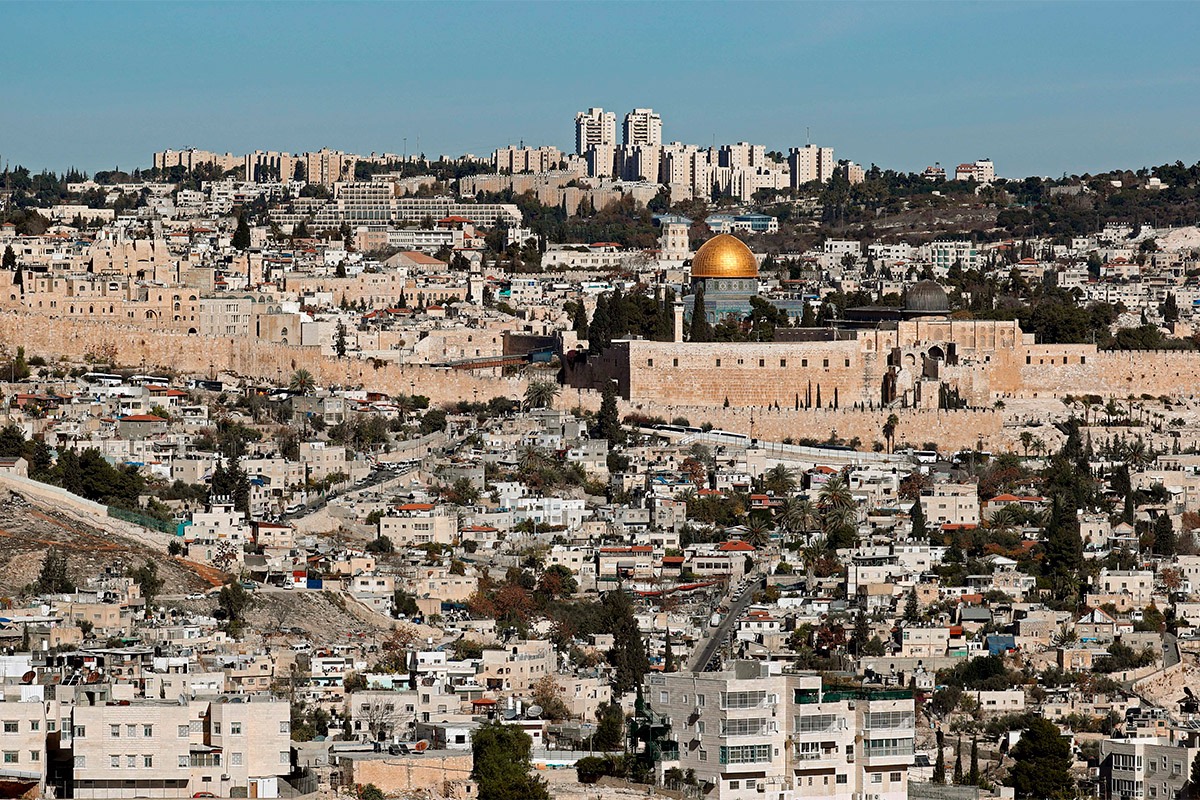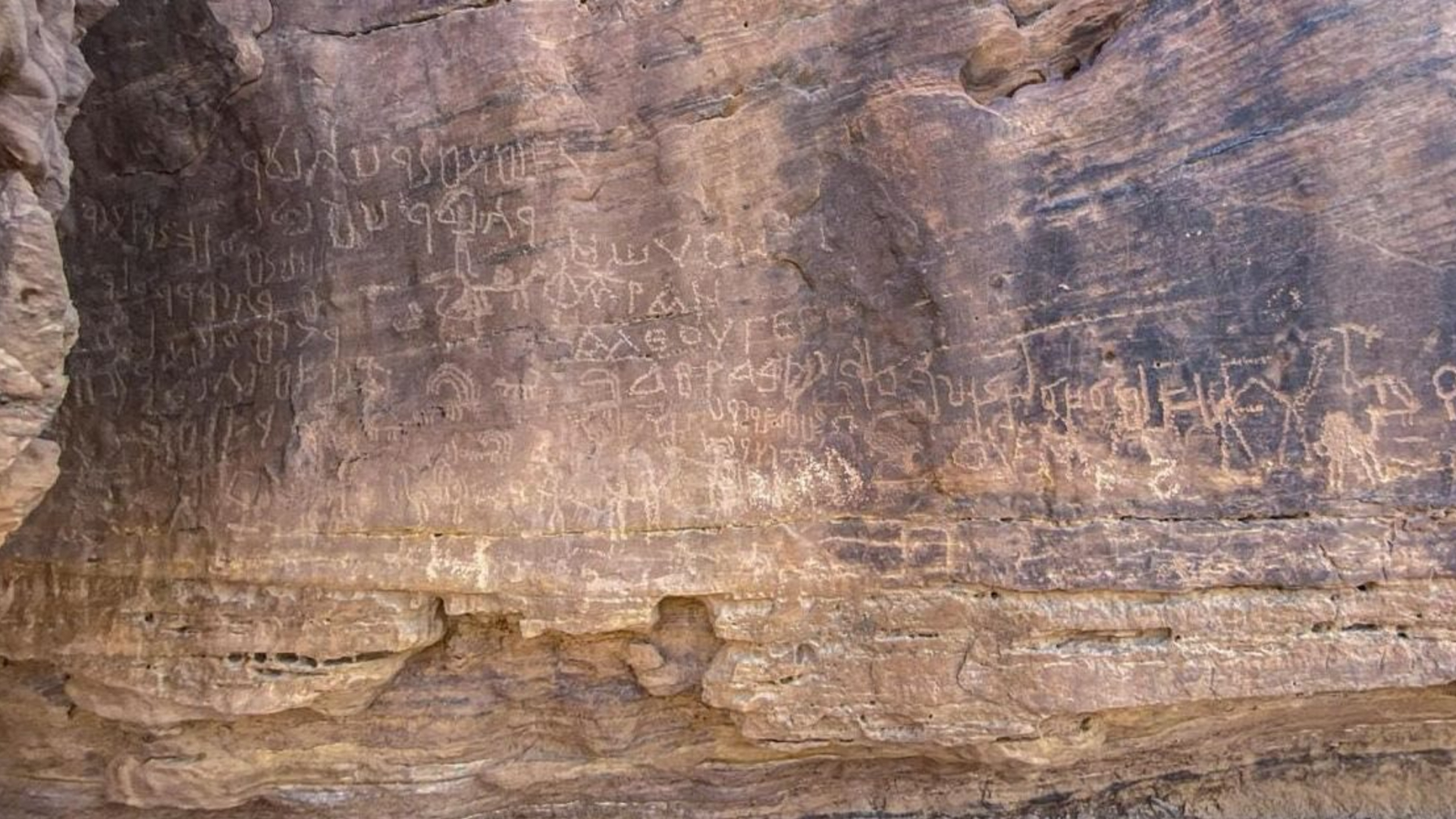The Jerusalem Quandary: Why Trump's Embassy Move Is Problematic

Get the world’s most fascinating discoveries delivered straight to your inbox.
You are now subscribed
Your newsletter sign-up was successful
Want to add more newsletters?

Delivered Daily
Daily Newsletter
Sign up for the latest discoveries, groundbreaking research and fascinating breakthroughs that impact you and the wider world direct to your inbox.

Once a week
Life's Little Mysteries
Feed your curiosity with an exclusive mystery every week, solved with science and delivered direct to your inbox before it's seen anywhere else.

Once a week
How It Works
Sign up to our free science & technology newsletter for your weekly fix of fascinating articles, quick quizzes, amazing images, and more

Delivered daily
Space.com Newsletter
Breaking space news, the latest updates on rocket launches, skywatching events and more!

Once a month
Watch This Space
Sign up to our monthly entertainment newsletter to keep up with all our coverage of the latest sci-fi and space movies, tv shows, games and books.

Once a week
Night Sky This Week
Discover this week's must-see night sky events, moon phases, and stunning astrophotos. Sign up for our skywatching newsletter and explore the universe with us!
Join the club
Get full access to premium articles, exclusive features and a growing list of member rewards.
The new U.S. Embassy in Jerusalem will open Monday, the Associated Press reported today (May 11).
The embassy, which will open with an initial staff of 50 people, will be housed in part of a pre-existing American visa-and-passport facility, according to the AP.
President Trump first declared his intent to recognize Jerusalem as the Israeli capital in December. At that time, he also announced that the U.S. Embassy would be relocated to Jerusalem, from its current location in Tel Aviv, the New York Times reported.
This was a highly controversial decision; the Israeli government claims Jerusalem as its capital, but the Palestinian National Authority (PA) considers East Jerusalem to be Palestinian territory illegally occupied by Israel since the Six Day War in 1967, and sees East Jerusalem as the capital in the future Palestinian state. In fact, the United Nations Security Council considers East Jerusalem an occupied Palestinian territory.
When Trump was considering the decision last year, PA President Mahmoud Abbas told him in a phone call that this decision could derail the delicate peace processes underway between Israel and Palestine, and could carry "grave consequences" for the future stability of the region and for "the world at large," according to the Palestine News Agency (PNA). [The Holy Land: 7 Amazing Archaeological Finds]
Trump's announcement drew criticism from international leaders at the time, with Jordan's King Abdullah II warning that moving the U.S. Embassy "will undermine the efforts of the American administration to resume the peace process and fuel the feelings of Muslims and Christians," the New York Times reported.
Turkish President Recep Tayyip Erdogan also expressed dismay at Trump's decision, threatening to sever diplomatic ties with Israel should the U.S. recognize Jerusalem as the capital, and French President Emmanuel Macron cautioned that Jerusalem's status would be best decided by Israelis and Palestinians, according to Al Jazeera.
Get the world’s most fascinating discoveries delivered straight to your inbox.
Israel's supreme court and parliament are housed in Jerusalem, making it Israel's legislative and judicial capital, while the city of Ramallah is the current seat of the PA government. But Palestinian officials hold firm that "there will be no Palestinian state without East Jerusalem as its capital," PNA representatives said in a statement.
With many aspects of Palestinian statehood still unresolved, Jerusalem's fate remains uncertain. In deference to its thorny political status — which dates back to the 1940s — the U.S. Embassy was established in Tel Aviv.
But in 1995, the U.S. passed the Jerusalem Embassy Act to initiate and fund the relocation of the U.S. Embassy to Jerusalem by 1999. However, as talks between Israel and Palestinian leaders continued without resolution, the move was repeatedly postponed in the interest of preserving the peace process and U.S. security, with a presidential waiver issued every six months to explain why the move should not take place.
President Trump signed one such waiver on June 1, 2017, claiming that he did so in order "to maximize the chances of successfully negotiating a deal between Israel and the Palestinians," the White House Office of the Press Secretary reported in a statement that day.
He did not sign the following waiver, which expired on Dec. 3, the New York Times reported.
Editor's note: This article was updated on May 11, 2018 to include information about the embassy opening.
Original article on Live Science.

Mindy Weisberger is a science journalist and author of "Rise of the Zombie Bugs: The Surprising Science of Parasitic Mind-Control" (Hopkins Press). She formerly edited for Scholastic and was a channel editor and senior writer for Live Science. She has reported on general science, covering climate change, paleontology, biology and space. Mindy studied film at Columbia University; prior to LS, she produced, wrote and directed media for the American Museum of Natural History in NYC. Her videos about dinosaurs, astrophysics, biodiversity and evolution appear in museums and science centers worldwide, earning awards such as the CINE Golden Eagle and the Communicator Award of Excellence. Her writing has also appeared in Scientific American, The Washington Post, How It Works Magazine and CNN.
 Live Science Plus
Live Science Plus










